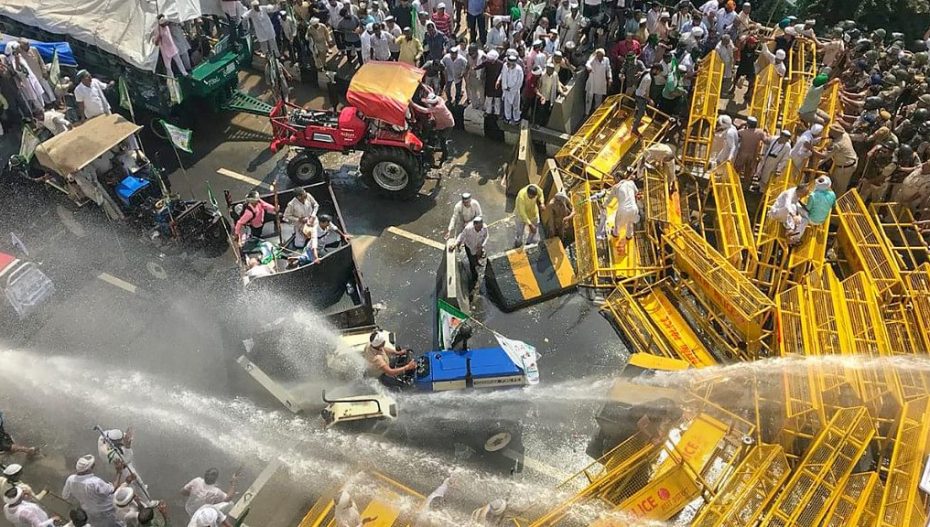It’s the largest protest in Indian history and is showing no signs of losing steam. For over nine months now, farmers across India have been protesting the ruling BJP government’s farm laws, which they say will crush the widely scattered farm sector and corporatise it. On September 5, farmers from 15 states across India gathered at Muzaffarnagar in Uttar Pradesh to reiterate that their protest will carry on till the Narendra Modi government fulfils their demands – the repeal of the three new agricultural laws.
Minimum support price
The farmers are asking for the guarantee of a Minimum Support Price (MSP) to ensure procurement of crops at a suitable price. The farmers want the government to continue with the conventional local community foodgrain procurement system instead of corporatisating agriculture in India.
Around 47 per cent of the country’s population are small farmers, who earn a living by tilling their land and selling what they produce. They feel they will all be all wiped out if the farm laws are implemented. They allege that as opposed to the conventional process, in the case of the three farm laws, there was no consultation undertaken by the central government at the time of promulgating the ordinances, and subsequently while pushing the bills through the Parliament.
Furthermore, it has been alleged that the BJP-led central government deliberately bypassed the federal structure by legislating on subjects that exclusively fall within the domain of the state government under the state list of the Seventh Schedule of the Constitution.
Even as the Indian government claims that not a single farmer has died in this protest, at least 400 deaths of farmers have already been registered in this context. The protest is multi-faith and includes both men and women from different states.
The heart of the matter
The protesting farmers point to similar situations in the international market, where corporatisation of agriculture without a security net in the form of an assured payment guarantee to farmers has resulted in the exploitation of farmers at the hands of Big Business.
The central issue here involves the systematic dismantling of the APMC mandis, which have stood the test of time and have provided farmers with the remuneration to keep themselves afloat. Protestors state that the farm laws will open the field to an alternate set of markets/private yards, where the buyer will have no statutory obligation to pay the MSP.
The new laws also expressly exclude the jurisdiction of the civil court, leaving the farmers with no independent medium for dispute redressal. This is another bone of contention.
The ongoing protest has is in danger of remaining unheard because the farmers are not rich enough to afford international marketing agencies and spokespersons to propagate their demands. However, a host of international celebrities have come forward to express their solidarity with the farmers. These include Rihanna, climate activist Greta Thunberg, actress Susan Sarandon, football player JuJu Smith-Schuster and at least four Olympic medal winners.
In response, the Indian government has been accused of trying to muzzle the farmers on social media, by having them suspended. Some Twitter handles you can follow to express your solidarity are:
@rakeshtikait who is a farmer and leading the movement
@_ yogendrayadav (an eminent sociologist supporting the movement.
@tractor2twitr and
@kisanektamorcha regularly posts updates about the protest.
@latewithlily @rupi_kaur and several farmers across the world who have shown support to the movement.












